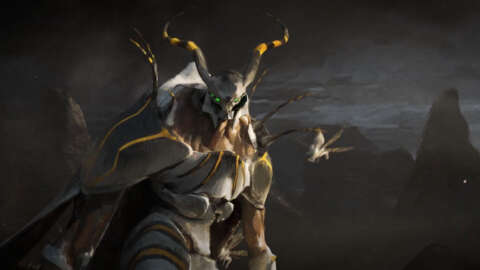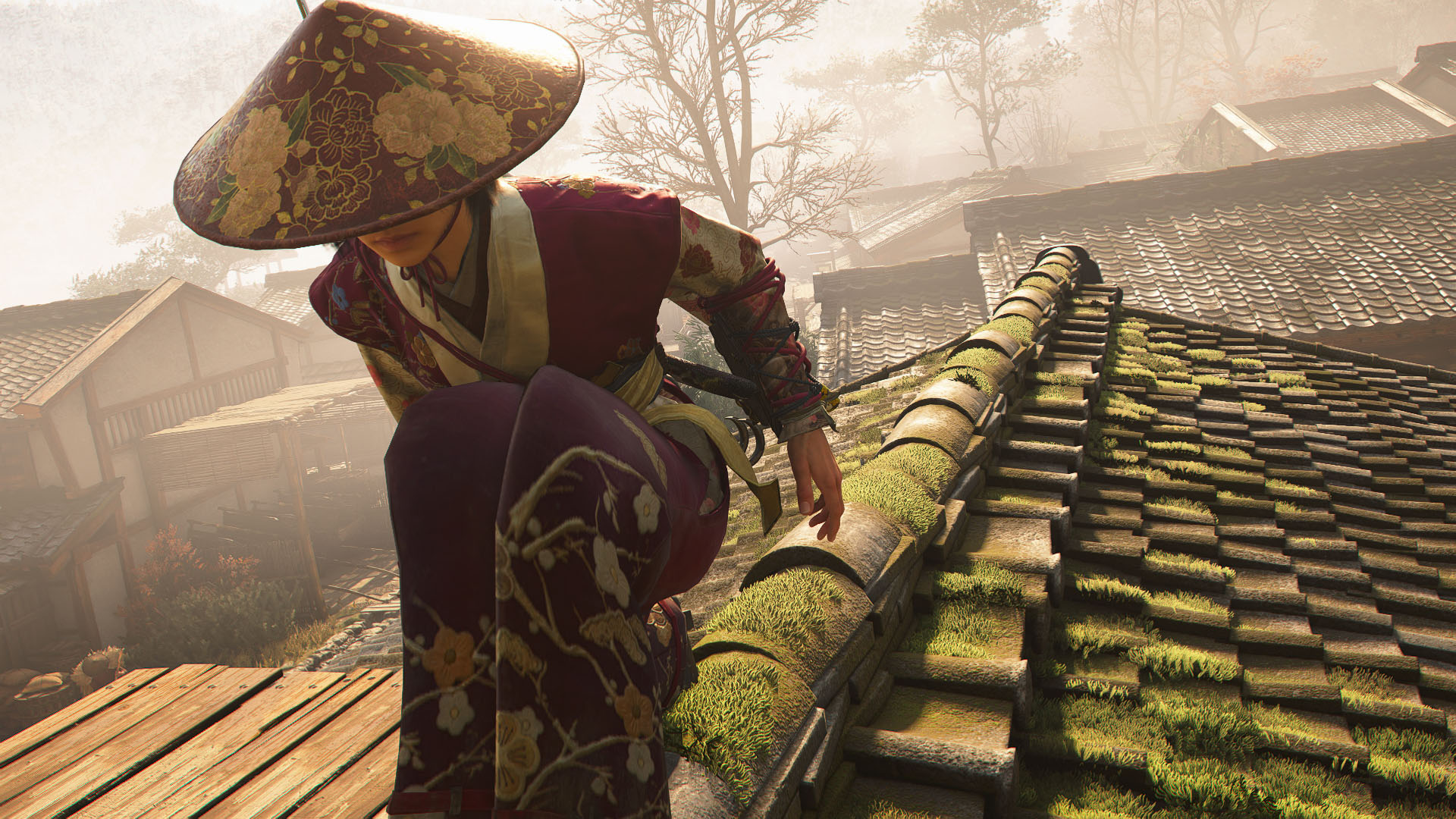
In the 2002 movie Chicago, Catherine Zeta-Jones steps into the spotlight to belt out “All That Jazz” with a defiant kind of joy that takes on new meaning once it becomes clear that her character, Velma Kelly, has just murdered her husband. Zeta-Jones’ rendition of the song was irresistible: On a wave of critical and commercial success, Chicago picked up the Best Picture Oscar (the first movie musical to win the award since 1968’s Oliver!), and studio executives started hunting for movies that could replicate the magic. In their minds, screen adaptations of stage musicals were suddenly bankable again.
Many tried to mimic Chicago’s success, but few did. Some subsequent movie adaptations of Broadway productions tried to retain the original stage casts, with shaky results. Others muted the genre’s excesses with realism, a head-scratcher in a setting where people are suddenly bursting into song and dance. Good, bad, or ugly, there have been dozens of major stage-to-film adaptations since the start of the 21st century. That includes three appearances by Meryl Streep, three films by Rob Marshall, two entries in the Mamma Mia Cinematic Universe, and one perfect shot of Dame Judi Dench in a cat basket, lifting her leg like a horny queen. But not all Broadway shows turned movies are created equal. Here, we sit down to compare them, from the razzle-dazzle-iest to, as the French might say, the miserables.
This list is periodically updated as new musicals are added. The latest: Mean Girls (2024) and Wicked.
31. Mean Girls (2024)

The marketing was right: “This isn’t your mother’s Mean Girls.” Instead, this “intended for Paramount Plus” curiosity is a strangely faithful but remarkably sauceless retread of the iconic original film, with a few songs thrown in just because. It’s a head-scratcher of a thought experiment akin to Gus Van Sant’s shot-for-shot Psycho remake, this time with TikTok dances. It’s not like the stage musical was ever hailed as one of the great works of the canon, but Tina Fey’s book for the Broadway show suggested she was genuinely interested in shaking up her now-sacred screenplay for the 2004 movie, and the original Broadway cast was so winning that it was difficult to not get at least a little bit of a contact high.
On screen, the buzz is nonexistent, as we’re shuffled through pale imitation after pale imitation of scenes that have been playing just fine on screen for the past 20 years. These musical numbers shun Broadway pizzazz in favor of Gen Z Cool, and still wind up the lamest things this side of Kidz Bop. Moana’s Auli‘i Cravalho and Tony Award nominee Jaquel Spivey are up to the task for a fun new take on this material, and Reneé Rapp does have a certain je ne sais quoi. But she so thoroughly blows Angourie Rice’s wispy take on Cady Heron out of the water that the film becomes a glorified Regina George stan account. Rice’s casting is at odds with the material, yet in perfect lockstep with a film that feels bafflingly miscalculated at every turn.
30. Dear Evan Hansen (2021)
There’s something so deeply unsettling about this film, and it goes far beyond the “Ben Platt is too old” jokes. It’s frankly fascinating how a universally lauded (and truly phenomenal) star turn onstage gave its performer an almost Icarus-level sense of confidence that resulted in perhaps the single most destructive piece of film casting in recent memory. Platt’s on-screen performance, with his withered frame and grasping claws, robs the piece of any charitable interpretation that was left for it, refashioning it completely into an F.W. Murnau-esque horror show, the closest musical theater has come to a snuff film. Every tear-stricken close-up only serves to further reveal the creators’ morbid fascination with this story’s Richard III-esque softboy villain. 2021’s scariest film.
29. Hello, Again (2017)
I don’t want to bury the lede: Three-quarters of the way through this adaptation of Michael John LaChiusa’s 1993 off-Broadway musical, itself a riff on Arthur Schnitzler’s La Ronde, there’s a totally-serious-but-feels-like-it’s-from-30 Rock music video for a gloriously tacky dance-pop banger called “Beyond the Moon,” performed by Audra McDonald in full-on Space Drag, intercut with her getting absolutely railed by Cheyenne Jackson (she legit calls him “my pig”). The fact that we are not talking about this every single second of every single day can most likely be blamed on the simple fact that to reach this buried treasure one would have to watch the rest of the movie.
Hello, Again is composed of a series of 10 vignettes, each set in a different decade of the 20th century and focusing on some horny tryst that then dovetails into the next sequence. “The Whore and the Soldier” becomes “The Soldier and the Nurse” becomes “The Nurse and the College Boy,” and so on and so forth. If that sounds like a sexy good time, just wait till you’ve heard the score, in which lyrics meander aimlessly from one bizarre non sequitur (“Look, I’m really pooped and I gotta leave tomorrow to fight a war, I need a beer”) to another (“What do you think about the U.S. involvement in Southeast Asia?”). At one point, there’s a scene where a closeted first-class passenger on the Titanic withholds the information that the ship is sinking from his lover in steerage so he can get some action. But we digress. Audra McDonald. “My pig.” Space Drag.
28. 13: The Musical
In 2007, a musical about kids coming of age in a small Indiana town, exclusively starring teenagers and with a score by Parade and The Last Five Years composer Jason Robert Brown, quietly ran for 105 performances on Broadway. As hellish as that sounds, the stage version of 13: The Musical isn’t half bad. Brown’s pop-pastiche score lends an air of sophistication to the story, and the expected treacly coming-of-age stuff is consistently undercut by a welcome sense of subversion.
There’s a horny ballad set in a movie theater called “Any Minute,” which juxtaposes the gory events of a horror flick with the youngsters’ desires to smooch their dates. There’s a vaudevillian turn, sung by a kid with muscular dystrophy, with the lyric “No one says no to a boy with a terminal illness.” How that all would’ve played on stage in 2022 is an open guess, but we’ll never know, since Netflix’s screen adaptation sands any rough edges down to a smooth, shiny veneer.
13: The Musical the movie still has some bops, but without any real sense of angst or edge. Without any new observations on the acne-ridden, hormonal rat race of middle school, this mostly just feels like an after-school special. There’s too much gentle earnestness, too much Preachy Rabbi Josh Peck and Sad Divorced Debra Messing Singing on a Porch. Things liven up whenever choreographer Jamal Sims gets the kids dancing, and king-in-the-making Ramon Reed nearly tears the house down with his performance of the blues showstopper “Bad News.” Alas, the bangers are few and far between, and they cut “It Can’t Be True” — an omission that feels like a hate crime.
27. The Prom (2020)
Ryan Murphy’s gaudy Netflix adaptation of the 2018 musical comedy hits its high point relatively early. Meryl Streep, patron saint of the 21st-century movie musical, struts into a small-town school board meeting and fights for the right of a lesbian to go to prom with her girlfriend — while simultaneously making it all about her — in a showstopping belter appropriately titled “It’s Not About Me.” It’s musical theater bliss, and Streep has a ball tearing into such shameless lyrics as “How do you silence a woman who’s known for her belt?” It also delivers on the initial promise of the musical, to ruthlessly mock performative wokeness in the face of actual injustice.
Alas, the source material shies away from the theme, settling for generic feel-goodery where the self-righteous characters get let off the hook and actually do save the day. It doesn’t help matters that Murphy often mistakes pastels for direction, drowning his all-star cast in blues and pinks whenever a song kicks in. At one point, Nicole Kidman sings an entire number about a nonsense word while it looks like aliens are landing outside. In space, no one can hear you zazz.
26. Jersey Boys (2014)
Clint Eastwood appeared in a movie musical once — 1969’s Paint Your Wagon — and that should’ve been the end of it. But for some still-unknown reason, in between J. Edgar and American Sniper, he directed this Broadway adaptation. While Jersey Boys is almost certainly the movie musical featuring the most Sopranos cast members per capita (we stan), it mostly plays like the shell of a Clint movie inside the shell of a Scorsese movie inside the shell of a musical. Marshall Brickman and Rick Elice’s broad screenplay clashes with the film’s gray palette, which also seems to stand in firm defiance of the fact that a lot of people have to burst into song in this thing. There’s certainly good moments, most of them related to Christopher Walken’s predictably endearing performance as mobster-with-a-heart-of-gold Angelo “Gyp” DeCarlo. But this is mostly a baffling entry both for the genre and in Clint’s filmography. YouTube the megamix end-credits sequence, skip the rest.
25. Dicks: The Musical
A24’s first movie musical is a crudely made song-and-dance extravaganza featuring graphic incest, Megan Mullally’s disembodied vagina, and two little gremlins called Sewer Boys who live in a cage and are fed ham directly from Nathan Lane’s mouth, like baby birds. Based on an off-Broadway musical first performed in a supermarket basement, and helmed by Borat director Larry Charles, the plot is basically an acid-brained, NSFW riff on The Parent Trap. Newcomers Josh Sharp and Aaron Jackson play flamingly gay spoofs of Straight Business Bros, a pair of separated-at-birth twins whose fateful meeting encourages them to try and get their agoraphobic parents (Lane and Mullally) re-hitched.
What could be a gloriously queer, subversively witty riff on musicals as a whole winds up more hit-or-miss, with Lane and Mullally providing most of the former, and nearly everything else the latter. The songs all suffer from the mistaken belief that crudeness equals funny (“Life’s a fucking handjob, and I only play to win / So stroke my fucking cock until I bust all on your chin”), and combined with Sharp and Jackson’s grating performances, the whole thing quickly devolves into tedium, even as it strives for a Freddy Got Fingered sort of Dada chaos. Love those Sewer Boys, though!
24. The Last Five Years (2014)
Speaking from experience, The Last Five Years works best in one-song installments at New York City cabarets on drunken evenings. And even then, perhaps we’re better off without. Its narrative, about a couple whose relationship crashes and burns, has never been particularly compelling, mostly because the guy, Jamie, has always felt like such an insurmountable douchebag, and the girl, Cathy, rarely feels like more than a collection of in-jokes about doing summer stock and auditioning for musical theater. The material’s chief appeal has always been its score, which is indeed brimming with wonderfully sophisticated character songs with substantial melodic staying power. They’re great to listen to, and less fun to watch performed back-to-back for two hours.
Still, there are a few things to like (I suppose) about the film adaptation. It’s small in scale for a movie musical, which feels refreshing, and it’s clearly made with love by director Richard LaGravenese. It also has a very good performance by Anna Kendrick. Other than that, its failings are the same as the stage version; it’s just exhausting to sit through wall-to-wall singing by two insufferable human beings. A mid-movie song about a tailor named Schmuel will have you praying for the end.
23. Everybody’s Talking About Jamie (2021)
It’d be great to report that a candy-coated movie musical about a high school-aged wannabe drag queen, featuring Richard E. Grant as his mentor, was a feel-good romp. Alas, most of this West End hit’s transfer to screen never rises above a cavity-inducing level of twee. There are bops to be heard, and Max Harwood acquits himself well in a debut performance, but the material’s Kinky Boots-esque juxtaposition of “drag queen strut meets working class streets” feels half-baked.
Jamie honestly seems like a bit of a pill, especially when everyone around him (all things considered) is pretty “Yaaas queen” about his drag ambitions. Even the bully isn’t so bad! Still, there are some good tunes, in particular the mom-rock future karaoke standard “He’s My Boy,” and a Boy George-esque original entry called “This Was Me.” It’s that number, with its VHS-tinged walk through the London streets of an AIDS-ravaged past, which gives the film its lone moment of genuine grit and pathos.
22. Les Misérables (2012)
The central experiment at the core of Tom Hooper’s film adaptation of Les Misérables is to have the actors sing live on set, beholden to no playback or tempo restrictions but their own. And it works… once. Anne Hathaway’s performance of “I Dreamed a Dream” is movie magic, still as shattering as it was before she won every award possible for it. For the rest of the film’s two-and-a-half-hour running time, the A-list cast whisper-sings their way through ballad after ballad, while an exceptionally nosy camera gets all up in their grill, giving the film a claustrophobic feel and denying audiences the distance needed for such epic melodrama as this.
At the time of its release, Russell Crowe received the brunt of the criticism, but the truth is that not many people come off well in this thing, not even Hugh Jackman. In Tom Hooper’s hands, everything is so incredibly important that nothing matters. Tedium sets in long before the halfway point, and the source material’s emotional climax is rendered inert. When a cast sobs and cries so much, there are no tears left for the audience.
21. Into the Woods (2014)
There was always going to be a movie of Into the Woods, and it was never going to completely work, even before Disney got their hands on Stephen Sondheim’s acclaimed fairy-tale musical. The first act is one story, the second another, and to combine them into one requires a false ending and a tonal shift that just doesn’t lend itself to a traditional cinematic three-act structure.
Of course, it would help if the film was more fun in its first act portion and darker in its second. Instead, the whole thing just feels as glossy and safe as the rest of Disney’s 21st-century live-action output. Director Rob Marshall may be an easy target for criticism, but he does have good instincts as far as movie musicals are concerned. (Perhaps my hottest take concerns a certain Mary Poppins sequel and how it’s secretly fantastic.)
Here, however, his inspiration feels dwindling, his direction a workmanlike ticking of the boxes through the songs, with none of the imagination that might justify their need to be filmed. As such, the main appeal is the performances, the best of which include Emily Blunt as the Baker’s Wife, Billy Magnussen and Chris Pine performing a very wet “Agony,” and (of course) Meryl Streep as the Witch. No, she probably didn’t need that Oscar nomination, but let’s not pretend her “Last Midnight” isn’t a high point in a film in desperate need of one.
20. The Phantom of the Opera (2004)
The second Hal Prince’s iconic staging is removed from Andrew Lloyd Webber’s flagship show, you’re left with a melodramatic mishmash somewhere at the cross-section of ’80s music video, L’Oréal ad, and porno. So it seems fitting that the film version is brought to us by the man who put nipples on Batman. The late Joel Schumacher directs the film around stars Gerard Butler and Emmy Rossum with all the subtlety of a gay sledgehammer, which, in theory, is the right fit for the material. The camera swoops, the chandelier falls, and there’s enough sconce-lighting to put Yankee Candle out of business for a decade.
Minnie Driver runs around in big pink dresses screaming “I ’ate-a my ’at!” like Super Mario in drag. It’s all very bombastic, but in a way, charmingly so; Phantom is the rare movie musical where it feels bizarre when they’re not singing. Still, this has never been the most compelling stuff, and its central love triangle is rendered even more dramatically inert when the Phantom’s disfiguring just looks like a mild sunburn.
19. Cyrano (2021)
Joe Wright (Anna Karenina, Atonement) has been directing musicals without singing for years now. The National, with their spare, introspective compositions, feels like a band tailor-made to express character through song. But I’m not sure a movie musical of their stage adaptation of Cyrano de Bergerac was the ideal collaboration between these vastly different artists. The songs keep wanting to get down and dirty with the characters, while Wright would much rather spend his energy swirling capes around and pumping up the fog machines.
That disconnect only serves to underscore the flailing but flaccid maximalism Wright can often be guilty of perpetrating in his films, as well as the droning sameness of this material’s score. Even Peter Dinklage’s soulful performance is victim of an almost-fatal flaw: sans his character’s iconic nose, this Cyrano’s combination of dashing good looks, swashbuckling swordplay, and elegant letter-writing makes it impossible to imagine a Roxanne who wouldn’t be throwing herself all over him. Still, the performances are solid, and an eleventh-hour ballad in an army barracks (featuring Once’s Glen Hansard) elevates the film, however fleetingly, into something achingly beautiful.
18. Annie (2014)
The thing nobody wants to admit is that this movie kinda slaps, and it’s mostly for one reason: Quvenzhané Wallis. Following up her Oscar-nominated, compelling-beyond-her-years performance in Beasts of the Southern Wild, she’s a radiant burst of sunshine capable of turning a potentially contemptible movie into a wash of dumb-but-warm fuzzies.
In many ways, it’s a bummer this film isn’t just a faithful remake of the musical with her in the lead role. Instead, every moment seems riddled with an anxiety that it won’t be cool enough, so the score is augmented with a slew of new Sia songs (“Now look at me and this opportunity”) and bizarro revamps of the original numbers. (Cameron Diaz’s “Little Girls” is either a camp classic or the worst thing you’ve ever seen, depending on how much you’ve had to drink.)
There’s also an absolutely insane sequence where Annie uses social media to rescue herself from being kidnapped. OK, so maybe it does suck, but when Wallis opens her mouth to sing “Tomorrow,” it’s good vibes only, the type of performance that stops cynicism dead in its tracks and drags a shitty movie kicking and screaming into something at least inoffensively charming. If that’s not in the spirit of Annie, I don’t know what is.
17. The Color Purple (2023)
This adaptation of the 2005 stage musical based on Alice Walker’s seminal 1982 novel, directed by Black Is King’s Blitz Bazawule, lies at an uneasy crossroads between remake and stage-to-screen transfer. Fans of the stage show will find the score cut to ribbons and augmented with hit-or-miss additions: It’s nearly an hour into the movie before we hear a complete version of a song from the original show. And the numbers that remain have been reconceptualized as a wide array of magical realism set-pieces.
At varying points, the protagonist, Celie (Fantasia Barrino) conjures up a chain-gang chorus to accompany her in song, rhapsodizes while standing in the grooves of a giant record on a gargantuan turntable, and transports herself into a movie screen for an Old Hollywood style pas de deux with her crush object, singer Shug Avery (Taraji P. Henson). The visual language is so scattershot, and the numbers so few and far between, that they don’t play like windows into Celie’s mind so much as flashy ways for Bazawule to stage a song. This hectic quality carries over into the film’s dance numbers, where Fatima Robinson’s lively choreography continually drowns out the principal characters, until it can be hard to remember why they’re singing at all.
Bazawule seems far less interested in the stage-musical aspect of the film than in fashioning a surprisingly faithful remake of Steven Spielberg’s 1985 film adaptation of Walker’s novel, already somewhat of a directorial mismatch, given the book’s grounded nature and Spielberg’s gauzy romanticism. But without the Quincy Jones score from the 1985 movie, or Allen Daviau’s sumptuous cinematography, this “reimagining” swerves dangerously into TV-movie territory, although through no fault of its sterling cast.
Barrino makes a remarkably assured debut, charting a course for Celie even as the film’s de-emphasis on her relationship with God leaves the character without a center. And while Bazawule seems completely at a loss for how to stage her five-course-meal showstopper “I’m Here,” she sings the absolute hell out of it. Henson brings her singular combination of spikiness and warmth to Shug Avery, and Colman Domingo justifies the redemption arc of Celie’s abusive husband Mister in a way I’m not sure has been as clear or compelling in any other version. And then there’s Danielle Brooks as Celie’s in-law Sofia, handily stealing every scene she’s in. A late-game dinner scene is completely galvanized by her titanic performance, jolting the film to life and conjuring the image of what a fireball of energy and emotion this could have been.
16. Wicked (2024)

The film adaptation of one of the most successful musicals in history arrived on a wave of critical and commercial success, not to mention escalating awards buzz. The hype is real, yet so are the flaws: namely, the film’s washed-out, homogenous cinematography and a padded-to-the-gills run time that had me feeling, though I cannot prove it scientifically, that this is in fact The Longest Movie Ever Made. The film’s overall look is disappointing, particularly for a film in conversation with The Wizard of Oz, one of the most iconically colorful and sumptuously designed films of all time. But the run time proves the bigger problem, especially when 160 minutes only gets us through the first act of the stage musical.
Cleaving the show into two movies isn’t necessarily the worst idea in the world, particularly considering that its source material is a 450-page novel that’s simultaneously a Wicked Witch of the West origin story, a political drama, and an animal-rights manifesto, complete with interspecies orgy. But bafflingly, the film doesn’t add anything particularly new to the story while bloating each beat of the musical to maximum capacity and sacrificing any sense of momentum or narrative thrust.
There are some strong moments from Cynthia Erivo and Ariana Grande, mostly vocally, but even these performances feel miscalibrated. Erivo’s Elphaba isn’t really the Wednesday Addams-esque misfit presented both in the book and in the original Broadway show, nor is Grande’s Glinda the confident, pampered princess who would make their initial clash and subsequent blossoming friendship compelling on screen. Step Up director Jon M. Chu has essentially delivered a cinematic souvenir program of the musical: It’s high on fan service, low on imaginative adaptation, almost damagingly obsessed with not shaking things up or doing anything to incur the show’s fans’ ire. It’s frustratingly earthbound when it should be… ahem… defying gravity.
15. The Producers (2005)
Somehow, The Producers is still the musical with the most Tony wins in history. With that kind of pedigree, it’s understandable so many people went to see the film adaptation and wondered what the hell all the fuss was about. Susan Stroman, one of the best director-choreographers in the theater biz, sadly seems at a loss when faced with translating her work to the screen. And Nathan Lane and Matthew Broderick, who gave the sort of Broadway performances legends are made of, compete unsuccessfully with the film ghosts of Zero Mostel and Gene Wilder.
At the same time, Stroman summons the charm of the Stanley Donen-style movie musicals of old. What was a Mel Brooks-laced love letter to the golden age of musicals on stage becomes a sort-of loving spoof of films like Singin’ in the Rain and On the Town. In many ways, “I Wanna Be a Producer” and “Springtime for Hitler” conjure that old-school Hollywood musical vibe more successfully than anything in La La Land, which aped the aesthetic but without impressive singing or dancing.
Many could rightfully complain about much of the not-PC nature of the source material, even though I’d wager Roger De Bris and Carmen Ghia rank as some of the most in love and out-and-proud show queens in cinema history. But maybe I’ve always had a hard time being mad with Mel, who really did become a lot cuddlier in his old age. As a document of his last great work, The Producers is a testament to his belief that laughing at Hitler was the best way to piss off a Nazi.
14. Nine (2009)
Nine, a movie of a musical based on Federico Fellini’s legendary 8 ½, isn’t very good. The plot’s pretty boring, and Daniel Day-Lewis spends most of the movie skulking around sounding like the Count from Sesame Street. But here’s the thing nobody else wants to say: It’s also a fun watch.
The supporting cast of women plays like Gay Avengers, and while hiring the likes of Marion Cotillard, Kate Hudson, Nicole Kidman, Fergie, Judi Dench, Penélope Cruz, and Sophia Loren to sing such lyrically clunky songs as “My Husband Makes Movies” and “Be Italian” feels kind of insulting, it’s also pretty fierce! Penélope Cruz slides down a giant pink curtain while singing about having sex with Daniel Day-Lewis! Judi Dench struts across the stage trailing a giant boa! Fergie waves around a tambourine filled with sand! Rob Marshall could’ve chosen any musical in the world to adapt for the screen after the success of Chicago, but he chose this one. That’s really fucking weird and kinda cool.
13. Rent (2005)
Based on the last sort-of generation-defining musical theater event before Hamilton, Rent is also one of the few 21st-century movie musicals to feature most of the original Broadway cast. The good news about that is that everyone sounds great; this movie soundtrack fucks hard. The bad news is that while everybody still looks immaculate, their age makes the whole “Why don’t they just pay their rent” aspect of this show even more questionable.
Youthful energy is in short supply here, save for Rosario Dawson’s criminally overlooked performance as Mimi; for such a cutting-edge show, its film version is disappointingly vanilla. Martin Scorsese and Spike Lee were each attached at one point to direct, and either of them would’ve made something infinitely more interesting than what Chris Columbus does here. Nothing feels real or lived-in; Mimi’s dive-y strip joint, the Catscratch Club, looks like a black-tie-only Vegas establishment, the Life Cafe like a TGI Friday’s. The PG-13 rating causes an inordinate amount of skirting around key issues to the source material, and several of the songs are given music video editing-style treatment, reaching an unhinged peak when Adam Pascal’s Roger struts around the mountains of Santa Fe with wind in his hair like Britney Spears in the “I’m Not a Girl, Not Yet a Woman” music video.
Still, this is Rent, which means its score consists of a never-ending succession of straight bops, and that it will always possess at least some element of raw emotional power. Whether watching for a drunken singalong with friends or ugly crying through “Without You,” there’s still plenty worthwhile here.
12. Rock of Ages (2012)
If Les Mis, Rent, and Wicked are musicals that needed to be cemented into culture with great movie adaptations, Rock of Ages is one that didn’t need an adaptation at all — but still turned out pretty fun. Directed by Hairspray’s Adam Shankman, the film sets its tone right from the get-go with an inspired bus singalong to “Sister Christian.” Not long after that, Alec Baldwin warbles his way through the lyric “Raise a toast to all of us” and Russell Brand belts out “Nothin’ But a Good Time.” Mileage with the material depends entirely on one’s enjoyment of A-list movie stars hamming it up to ’80s covers, but the cast is completely committed to the bit.
None more so than Tom Cruise, who in some bizarre alternate universe finagled an Oscar nomination for wearing assless chaps belting “I Wanna Know What Love Is’’ straight at Malin Åkerman’s vagina. The plot, such as it is, is hardly the attraction here, though Shankman often spends more time with it than necessary. But the moments when it embraces pure ridiculousness, like Baldwin and Brand falling in love to REO Speedwagon, or Catherine Zeta-Jones serving “Hit Me With Your Best Shot” a la Tipper Gore with a chorus of church ladies, come fast and furious enough to make this more fun than it probably should be.
11. Cats (2019)
Cats is not the movie Tom Hooper thought he made. His self-proclaimed screed about the “perils of tribalism” is filled with the worst trappings of the director’s filmography: an all-pervading self-seriousness, broad and unfunny attempts at comedy, and a willful refusal to just let a song be a song. It also looks fucking crazy.
But Cats transcends its maker to become one of the most utterly bizarre and joyous pieces of fuckery to grace the silver screen in a long, long time. It’s not only no fun to say the Cats movie is bad; it’s also wrong. It’s too strange, too out there, too bursting with an oddly endearing Theater Kid energy to completely write off. To watch Cats in a theater with an amped-up audience is to enter a cabal of communal joy, a Jellicle Ball, if you will, that goes right past hate-watching and hits something unmistakably pure. It’s a singalong audience participation fest where you can roll your eyes at James Corden and Rebel Wilson, take a bathroom break during that new song Taylor Swift wrote lyrics for, boo Idris Elba’s Macavity like an old panto villain, and cheer like Tinker Bell’s been resurrected when Mr. Mistoffelees magics Old Deuteronomy back from Ray Winstone’s murder barge in the middle of the Thames.
And that’s to say nothing of the fact that Sir Ian McKellen is actually really good in it, nor that Dame Judi Dench somehow sat on that set in her green leotard with dots all over it and galaxy brained the gonzo clusterfuck this film would eventually become, distilling it all into one deeply strange, wildly horny, and bizarrely regal performance. Of course, the unmistakable king of the entire thing is Skimbleshanks the Railway Cat, whose entrance during the last screening I attended (yes, I’ve gone to many) caused one woman behind me to scream uncontrollably, “FUCK IT UP, SKIMBLE!” Cats rules. Fuck it up, Skimble, indeed.
10. Roald Dahl’s Matilda: The Musical
In 2022, one of the most deliriously inventive and winning stage musicals of the 21st century was quietly adapted into a live-action film and promptly dumped onto Netflix. Tim Minchin and Dennis Kelly’s take on Roald Dahl’s classic story of youthful, principled defiance in the face of oppression felt on stage like the perfect cocktail of Dahlian cheekiness, warmth, terror, and anarchy. Happily, the film adaptation retains most of the show’s distinctly calibrated charm, with a rare success story in Matthew Warchus’ seamless transition from directing the original stage production to bringing it to life on screen.
In spite of the typically flat digital sheen of the Netflix house style, this movie version is largely inventively shot, dynamic, and brimming with life. That’s particularly true whenever its ensemble of kids is on screen singing and dancing, such as in the Busby Berkeley-style centerpiece “Bruce” or the achingly bittersweet “When I Grow Up.” “Revolting Children,” Minchin’s 11-o’clock anthem to well-placed anarchy, is catharsis incarnate, and its showstopping presentation here is the cherry on top of a film that strives to capture all the bruises and blessings of childhood. This is to say nothing of a radiant supporting performance from Lashana Lynch as Miss Honey, and another from a certain Red Beret Girl.
9. Dreamgirls (2006)
Dreamgirls is probably the purest descendant of Chicago’s success, a distinction partially due to that Oscar-winning film’s writer, Bill Condon, taking writer-director duties here. But mostly, Dreamgirls feels like one of the last times one of these things was stacked with a celebrity cast that didn’t feel hackneyed, not to mention one that could actually sing and dance. The confluence of talent in this ensemble is nothing short of dynamite. Eddie Murphy’s turn as James “Thunder” Early is such a barnstorming marriage of character and career that it will forever be a bummer he didn’t take home the Oscar. Jamie Foxx is solid as ever, Anika Noni Rose is so radiant one wishes she was in more movies, and Beyoncé’s casting as the Diana Ross-esque Deena only grows more and more inspired as her legend increases.
It’s unfortunate, then, that these performances often get lost in the shuffle of a movie that sometimes feels like an endless montage set to music. It seems a silly complaint when the songs are this good, but Condon’s frantic cutting through the ’60s and ’70s, from Motown to doo-wop to disco, eventually starts to feel like a museum tour gone haywire. The film is still a good time, but it only ever really soars twice, when the director finally decides to chill out and hand over the reins to his performers.
That’s in Beyonce’s late-film original song “Listen,” where she grabs the movie by the balls and says, “I will be around for a long, long time, thank you very much.” And of course, it’s in the film’s centerpiece, Jennifer Hudson’s thunderous and instantly-iconic performance of “And I Am Telling You I’m Not Going.” So what if nothing after it can top it? Every movie dreams of having a moment as powerful as that.
8. In the Heights (2021)
So many modern-day movie musicals have made a habit of apologizing for bursting into song, timidly bridging the gap between speech and singing in a way that makes you wonder what the fuck the point even is. That’s refreshingly not the case with In the Heights, which dives joyously and effortlessly into all that is excessive and extraordinary about the genre.
“The streets were made of music,” says Dominican immigrant Usnavi of his Washington Heights block, and director Jon M. Chu takes the line endearingly literally. In the film version of Lin-Manuel Miranda’s debut musical, manhole covers spin like records, bewigged mannequin heads bop to salon shop gossip, and stars are born as frequently as the fireworks that pop off in the film’s mid-movie blackout sequence. There’s Daphne Rubin-Vega, reaping rich revenge for being left out of the Rent film; Gregory Diaz IV, spitting fire and sweetness as Sonny; Corey Hawkins, practically combusting with showbiz gusto; Olga Merediz, giving a prime rebuttal to the myth that original Broadway cast members can’t also give phenomenal screen performances; and Anthony Ramos, giving one of the most confident, sexy, and undeniable movie star debuts in years.
Not to mention the joy-bomb that is Mr. Jimmy Smits entering a bodega while singing “Good morning, Usnavi,” or Miranda himself defying the haters in a walking-on-air cameo as what I can only hope will become the next Marvel superhero, Piragua Man. In the Heights feels entirely of the moment, even as it stretches back through film history to pay homage to everyone from Busby Berkeley to Esther Williams to Fred Astaire to Spike Lee.
That’s not to say it’s perfect; Quiara Alegría Hudes repeals, replaces, and improves virtually all of her book in the screenplay adaptation, but still can’t account for the fact that plot just isn’t the strong suit of this show, nor that its second act is severely lacking in the story department and in its songs. Still, for much of its lengthy running time, In the Heights is as blazingly hot as a scorching summer day, as cool and refreshing as a cup of shaved ice, the type of party that goes on far too long but you still don’t really want to end.
7. Sweeney Todd: The Demon Barber of Fleet Street (2007)
Of all the film adaptations of traditional musicals to hit the screen since Chicago, very few feel like a perfect marriage of director and material. Tim Burton’s film of Sweeney Todd is such a match made in heaven, such a wonderful mashup of Hammer horror film, black comedy, and slasher movie, that he exhausted all his imagination and creativity on it and never made another great movie again. Purists may complain about the lackluster singing (it’s fine) or the judicious cuts in the score (au revoir, “Ballad of Sweeney Todd”), but the film is its own unique thing, separate from its source material on the stage, as good a movie musical as it is just a plain old movie.
In fact, paring it down to its revenger’s tragedy essence, colored only by gloriously gory geysers of crimson blood, brings out the inherent cinematic quality of the source material. Aside from boasting one of the most masterful scores ever written for a musical, Sweeney has always been just a damn good yarn. During the film’s final stretch, when the tension has ratcheted up for all the principal characters and the body count rises to an insane peak, Burton and his sublime cast (particular shoutouts to Helena Bonham Carter and Alan Rickman) have managed to do what few other recent movie musicals have done: make you forget everyone’s singing, and surrender completely to the story. It’s so good that even the late Stephen Sondheim, who notoriously hated films of his work, loved it.
6. Chicago (2002)
Chicago’s breezy, “razzle dazzle” vibe can make it feel like one of the more lightweight Best Picture winners of the 21st century. But as much as director Rob Marshall does ape the shooting and editing style of Bob Fosse’s far superior Cabaret and All That Jazz, and as much as its thin satire on murder and showbiz becomes a bit tired in the film’s back half, Chicago is still an extremely entertaining movie.
This is particularly true of the first 30 minutes, which trots out its all-star cast one by one (first Catherine, then Renée, then Queen Latifah herself) as if they were some of the most formidable showbiz warhorses ever, culminating in the positively orgasmic “Cell Block Tango,” one of the best musical numbers ever committed to film.
The rest of the movie often plays like a greatest hits reel, but what hits! Richard Gere does a striptease! The Press Conference Rag! And in maybe the best moment in the whole film, John C. Reilly brings the house down in one of the finest numbers Kander and Ebb ever wrote, “Mister Cellophane.” Chicago may be slight, but the one that reignited the genre is still pretty hard to beat.
5. Hairspray (2007)
The most successful movie adaptations of musicals take the spirit of what was onstage and transform it into something fresh and new that works on its own terms on screen. Chicago did it, and Hairspray does it, too. What makes Hairspray more impressive than its forebear, though, is that it makes no excuse for its singing. The numbers aren’t happening in Tracy’s head, and they aren’t stage-bound. Director Adam Shankman, with a fabulous cast, manages to make a full-blown, unapologetic musical comedy thrive on screen, and its spirit is infectious.
Much fuss was made at the time about John Travolta’s casting, but while he’s no Harvey Fierstein (or Divine, for that matter), and while he does look like a nightmarishly overgrown Cabbage Patch Kid, there’s something just so sweet about his Edna Turnblad. “Sweet” is the operative word for this whole movie, actually, because from the moment Nikki Blonsky (from the movie Hairspray) belts out “Good Morning, Baltimore,” the film slaps a smile on your face and doesn’t let up, from Michelle Pfeiffer’s icy “Miss Baltimore Crabs” to Elijah Kelley’s roof-raising “Run and Tell That” all the way through to “You Can’t Stop the Beat,” forever and always one of the most joyous finales in musical theater.
Hairspray’s rose-colored-glasses ending, where the fat girl gets the hot guy and kills racism in one fell swoop, may be simplistic to a fault. But it’s also exactly the kind of utopian dream that nothing can sell better than a musical.
4. Mamma Mia! (2008)
Critics slammed this thing upon release, and I get it; it’s a star-studded adaptation of an ABBA jukebox musical. But watching it now, you can’t help but wonder what had everyone so grouchy in 2008. This is a film that knows exactly what it is from top to bottom, a wonderfully high-spirited, utterly joyous romp about a reunion of childhood girlfriends and the bond between a mother and her daughter.
It’s also about watching Meryl Streep fully blossom into the “I give no fucks” era of her career. The Devil Wears Prada kicked open the door, but it’s hard to resist just how much of a blast she’s having here, whether it’s treating the title song like Hamlet’s “To be or not to be” soliloquy, jumping into splits up and down on a bed, or running up a massive winding hill waving a red scarf in despair while Pierce Brosnan bellows out, “DONNAAAAAAAAA!”
Her thoroughly committed, effervescent performance gives the rest of the cast permission to let their hair down, and together with director Phyllida Lloyd they manage to effortlessly glide from the complete camp of Christine Baranski and Julie Walters thrusting on Jet Skis to a rather touching sequence where a mother gets her daughter ready for her wedding, all with a mastery of tone that honestly puts lesser adaptations of better musicals to shame.
A final note: While the sequel is itself its own kind of fun, it’s time to correct the narrative that it in any way surpasses the high-flying joy of the original. That said, I would be remiss not to mention that Cher singing “Fernando” is one of the greatest things to have ever happened in a movie.
3. West Side Story (2021)
It seemed an impossible task, bordering on the unnecessary. But this remake of our great American musical, by one of our great American filmmakers, makes the case for its existence, and its necessity, almost instantly. It’s not just that Steven Spielberg corrects the casting sins of the 1961 original, ceding power to the Latino performers in order to bring an exhaustive authenticity to the piece’s Puerto Rican characters. It’s that he also schools virtually every movie musical director of the century with a breathlessly entertaining film that also ranks as one of his best in recent years.
In West Side Story, his old collaborators seem reinvigorated; Tony Kushner’s screenplay gives a complete recontextualization to the piece, strengthening characters and bolstering beats while still letting Leonard Bernstein’s all-timer of a score sing in ways both familiar and surprising. Janusz Kamiński’s cinematography, enlivened by Bernstein’s propulsive rhythms, ducks and dives around Adam Stockhausen’s purgatorial sets, popping with color in his most exciting work since Saving Private Ryan.
And the cast is killer, from a crooning Ansel Elgort and movie star in the making Rachel Zegler to Ariana DeBose’s shattering Anita and Mike Faist’s scrappy, Mulaney-meets-Pesci take on Riff. Sure, there are plenty of highs from the original that this new incarnation could never hope to hit. But along the way, it creates plenty of new ones.
2. Tick, Tick… Boom! (2021)
Lin-Manuel Miranda has long teased his infatuation, and frustration, with the challenges of bringing a musical from the stage to the screen. With his directorial debut, he reveals that nearly all of his impulses for that tricky transition were ultimately correct. tick, tick… BOOM! is refreshingly alive, as eager to please and make the most of its limited time as its creator, Jonathan Larson, lovingly embodied in a career-high performance by Andrew Garfield. Not only that, but Miranda’s passionate involvement magically transforms a somewhat minor, navel-gazing stage show with some good songs into a full-bodied tribute to creators everywhere, to any dreamer who keeps throwing stuff at the wall, moving constantly to the next and the next, and on and on, as well as to the shitty apartments, grinding jobs, and loving friends who give them lives worth living, and worth writing about. It’s Fosse’s All That Jazz by way of our most Professional Earnest Theater Kid.
1. Hedwig and the Angry Inch (2001)
Ladies and Gentleminions, this is the best movie musical the new millennium has gifted us thus far. A hysterically funny, poignant, and ultimately cathartic show onstage, Hedwig was reinvented and given a wonderful screen treatment by its creator and star, John Cameron Mitchell. It’s a tricky adaptation, given that onstage it plays out as a rock concert with stand-up patter interludes. Yet somehow Mitchell finds new and inventive visual ways to maintain the bitchily sardonic humor that came from Hedwig’s musings onstage.
It helps that Stephen Trask’s songs make up one of the most underrated scores in the entire musical theater canon, but it’s Mitchell (and DP Frank DeMarco) who give each and every one deliriously imaginative staging. Hedwig soars above a sloppy food fight, her POV shuttered by the periphery of her iconic locks; there’s gorgeous cave-painting style animation by Emily Hubley that accompanies “The Origin of Love,” one of the most beautiful songs perhaps ever written; and in a magnificent coup de theatre, the wall of a mobile home opens to the ground, transforming the trailer into a full-on proscenium stage for Hedwig to rock out on.
The whole thing is pure funhouse filmmaking on a shoestring budget, and every scene is treated with care, humor, and an unshakably honest humanity. Hedwig is a film that marches defiantly to the beat of its own drummer, all the while filling you up with all the empowerment and self-love you’ve ever wanted from a movie musical.
Source:https://www.polygon.com/movies/22535614/broadway-musicals-adapted-as-movies-ranked-best-and-worst

